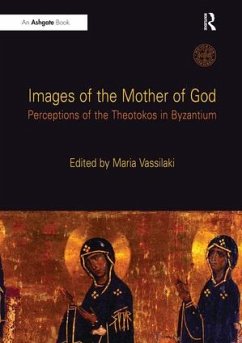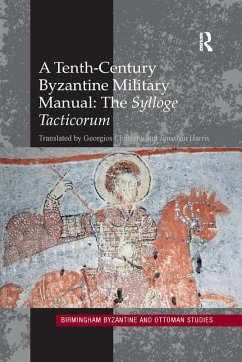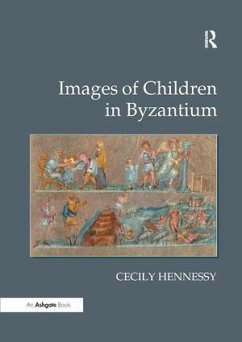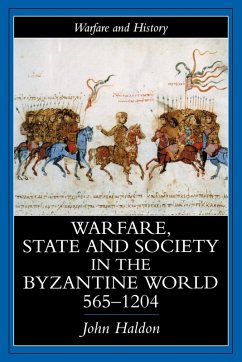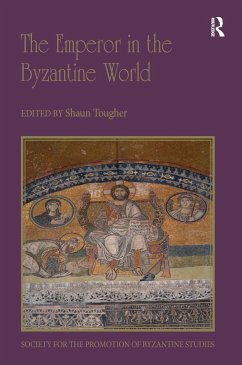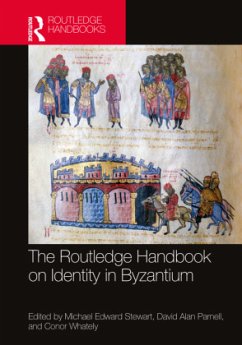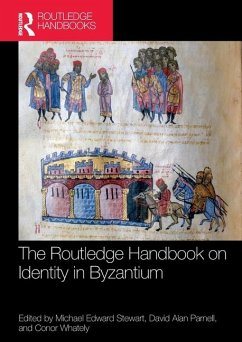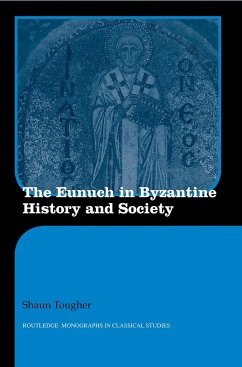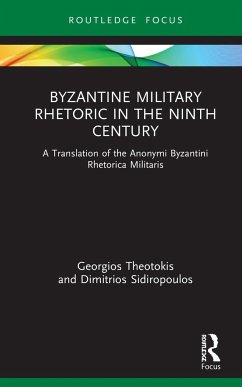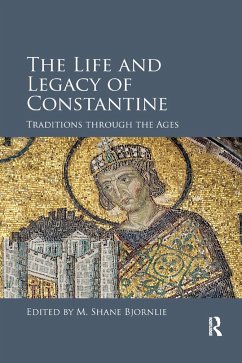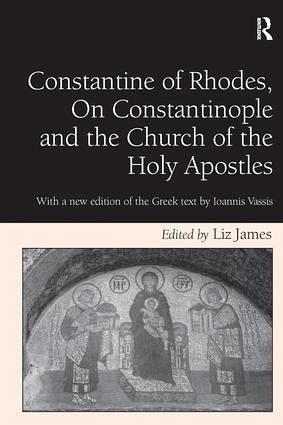
Constantine of Rhodes, On Constantinople and the Church of the Holy Apostles
With a new edition of the Greek text by Ioannis Vassis
Herausgegeben: James, Liz

PAYBACK Punkte
29 °P sammeln!
Constantine of Rhodes's tenth-century poem is an account of public monuments in Constantinople and of the Church of the Holy Apostles. In the opening section of the work, Constantine describes columns and sculptures within the city, seven of which he calls 'wonders'. In the second part of the poem, he portrays the Church of the Holy Apostles, offering an account of its architecture and internal decoration, notably the mosaics, seven of which are also depicted as 'wonders'. On one level, the poem offers an account of what was visible, a sense of city topography and, in the case of the Apostolei...
Constantine of Rhodes's tenth-century poem is an account of public monuments in Constantinople and of the Church of the Holy Apostles. In the opening section of the work, Constantine describes columns and sculptures within the city, seven of which he calls 'wonders'. In the second part of the poem, he portrays the Church of the Holy Apostles, offering an account of its architecture and internal decoration, notably the mosaics, seven of which are also depicted as 'wonders'. On one level, the poem offers an account of what was visible, a sense of city topography and, in the case of the Apostoleion, a vital description of a now-lost building. But it cannot be read as a straightforward description. Rather, Constantine's work offers insights into Byzantine perceptions of works of art. The monuments Constantine decided to portray and the ways in which he chose to describe them say as much, if not more, about the social and cultural milieu in which he operated as about the actual physical appearance of the monuments themselves. Further, the poem itself, as it survives in one fifteenth-century manuscript, raises questions: is it, in its current form, a single poem or is it made up of a compilation of Constantine's writings? This book supersedes the two previous editions of the poem, both dating to 1896, and provides the first full translation of the text. It consists of a new Greek edition of Constantine's poem, with an introductory essay, prepared by Ioannis Vassis, and a translation and commentary by a group of scholars headed by Liz James. Liz James also contributes an extensive discussion of the two distinct parts of the poem, the city monuments and the Church of the Holy Apostles.





